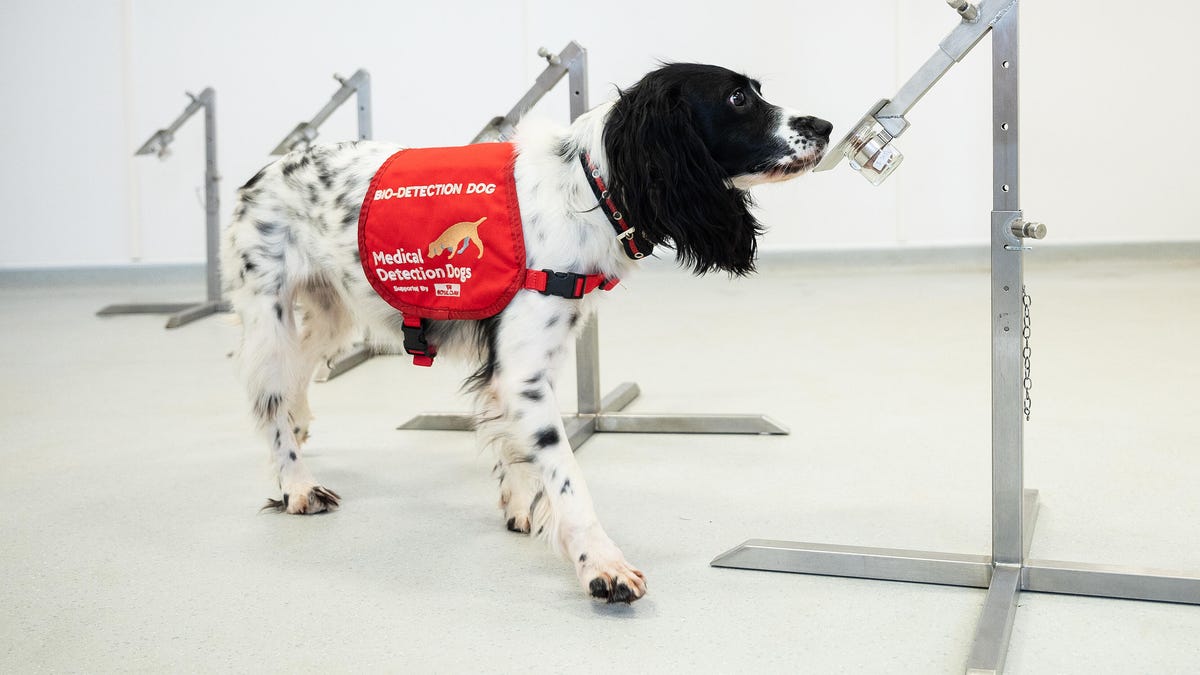Dogs can sniff out 90% of COVID-19 cases, even if they're asymptomatic
New research backs up the idea that dogs can accurately sniff out COVID-19.

Here a dog named Freya correctly detects a malaria sample at the "Medical Detection Dogs" charity headquarters on March 27, 2020 in Milton Keynes. Research has shown dogs can also identify COVID cases.
According to new research, trained dogs are capable of identifying 90% of COVID-19 infections regardless of whether those cases are asymptomatic.
A team of scientists from The London School of Hygiene & Tropical Medicine, a public research university based in London, are behind the research, which is currently available to read as a pre-print. The results add to growing evidence that dogs can sniff out the virus, echoing previous research and a recent French study, released seven days ago, that found dogs were able to identify the virus with 97% accuracy.
In the new tests, scientists used the socks of 200 COVID-19 patients, doling them out to six poor dogs who were tasked with sniffing them, alongside others, in an attempt to figure who did and didn't have COVID-19.
Dogs have over 220 million scent receptors (in comparison, humans have 5 million) and are over 100,000 times more accurate at identifying scents. Their noses are capable of smelling substances at a concentration of one drop in three Olympic-sized swimming pools. This has allowed dogs to successfully sniff out multiple different types of cancer, alongside other diseases like malaria and Parkinson's.
Some scientists believe dogs should play a larger part in identifying potential cases in airports -- as long as they are trained to avoid flagging false positives to receive treats. In order to do that, the dogs have to be rewarded for identifying correct negatives as well as correct positive results.
James Logan, a co-author on the study, believes dogs could play a huge role in identifying COVID cases in such a situation, but believes they should be used in conjunction with other methods.
"The key thing is that dogs are significantly quicker than other tests," he said.
"What we're suggesting is that dogs would give the first initial screening, and then those (arrivals) that were indicated as positive would then receive a complimentary PCR test."

